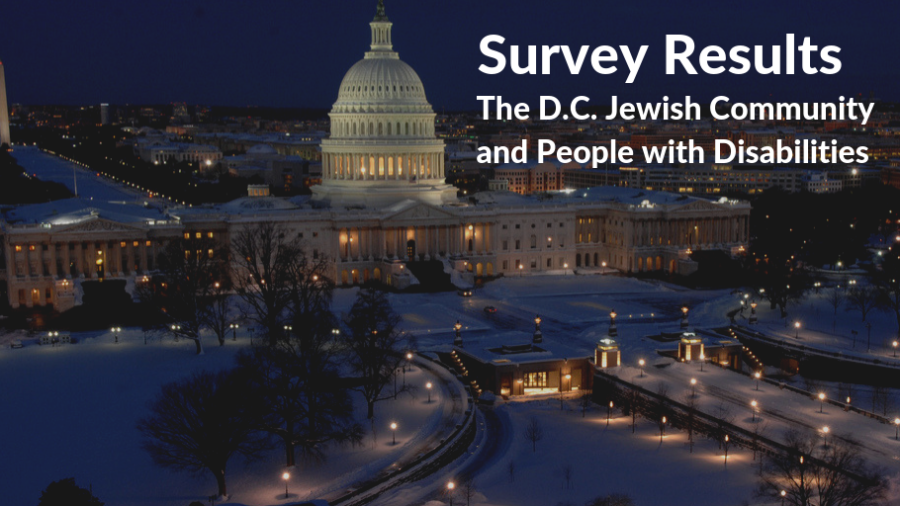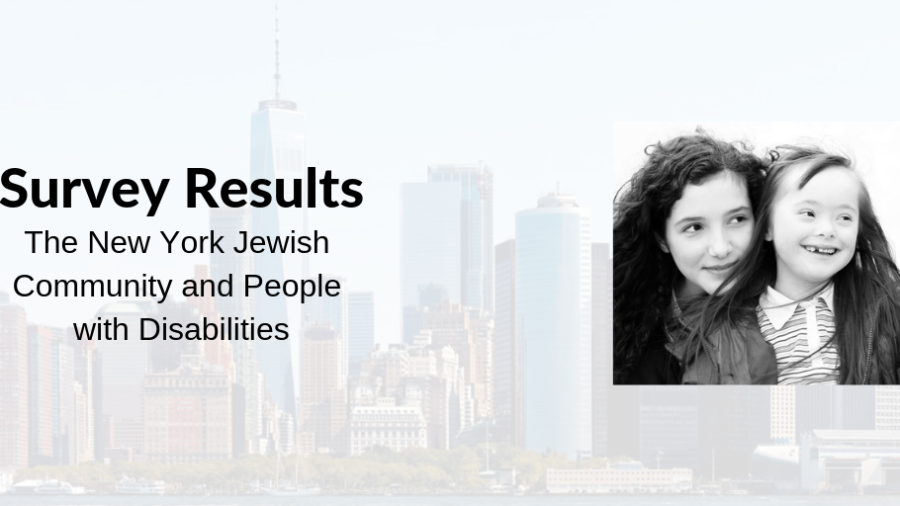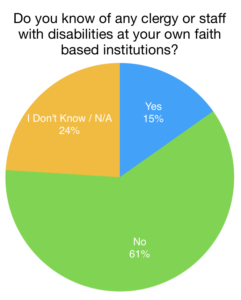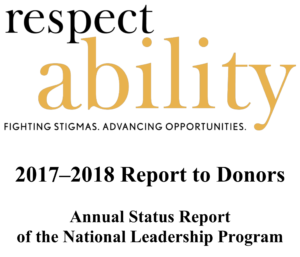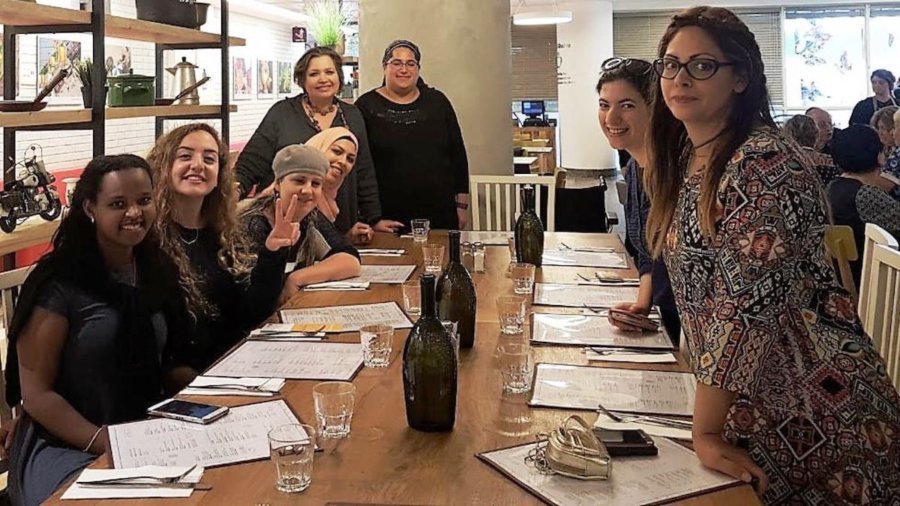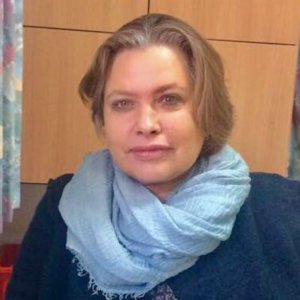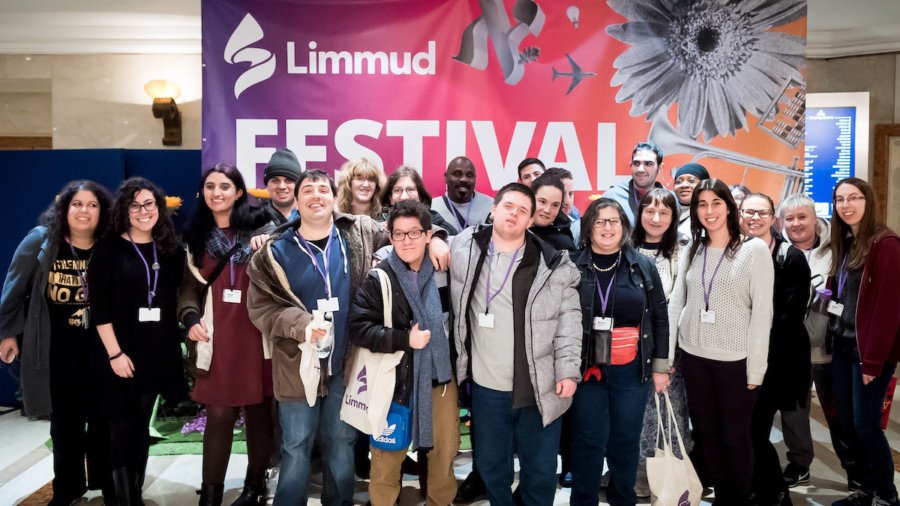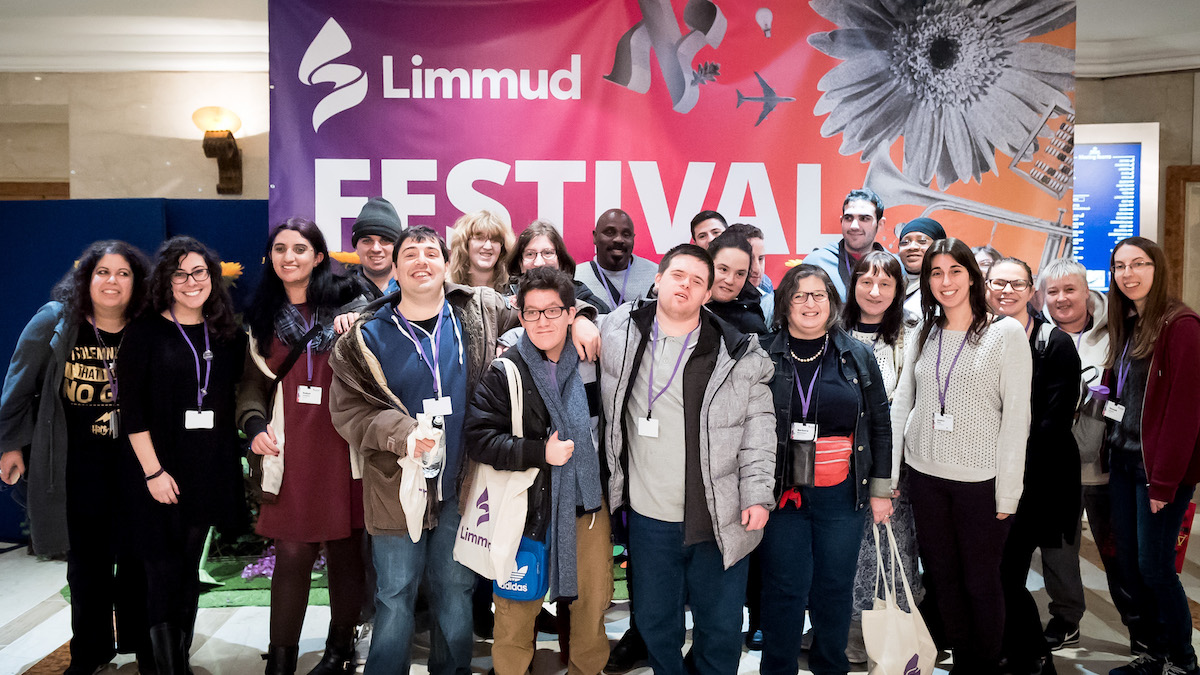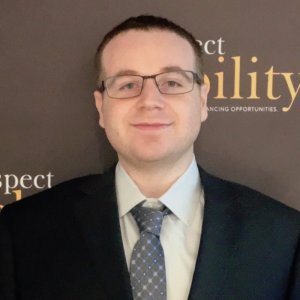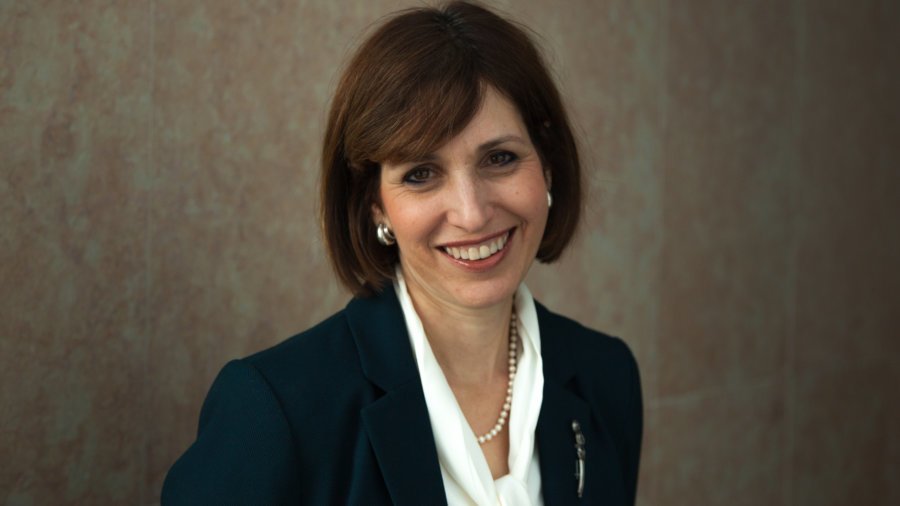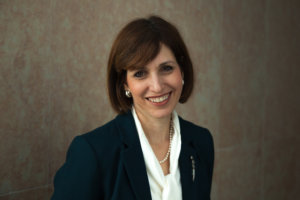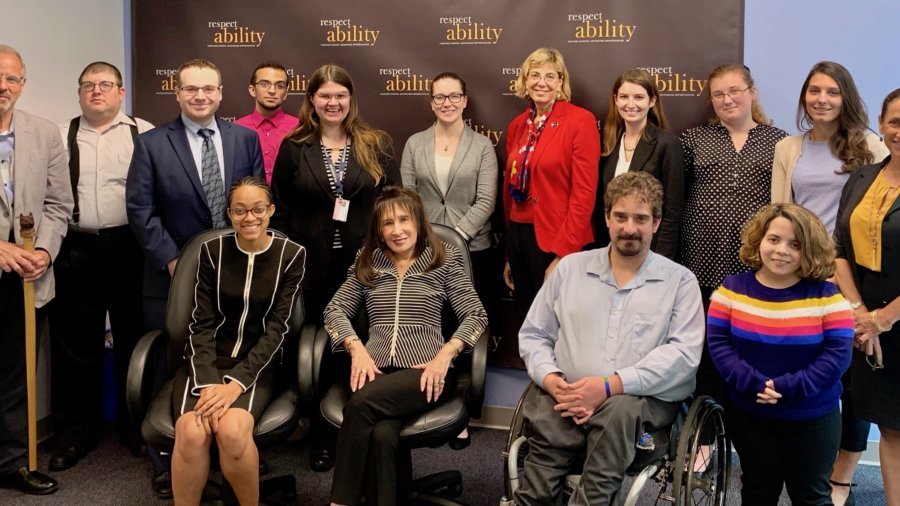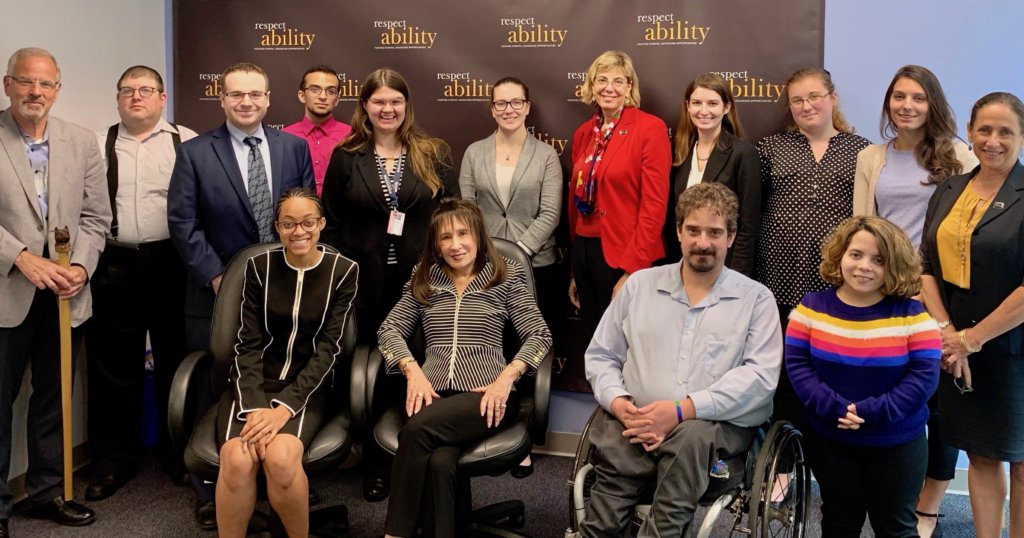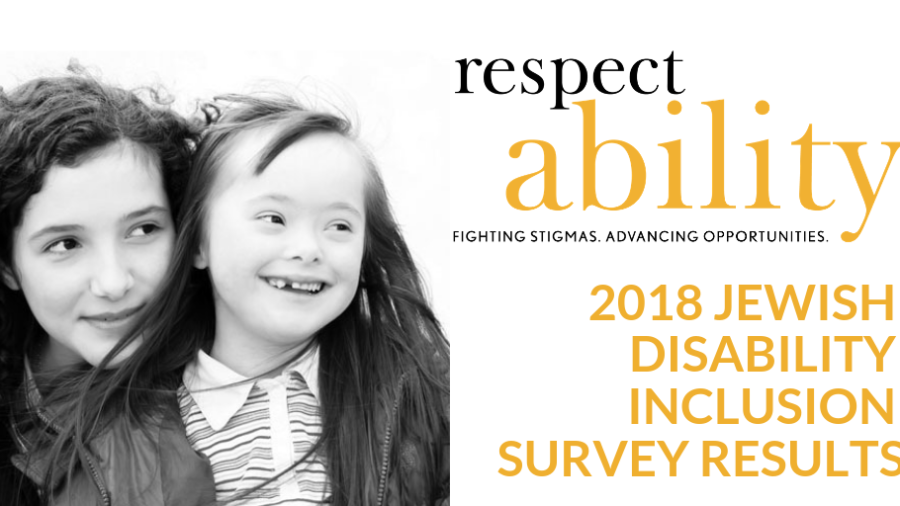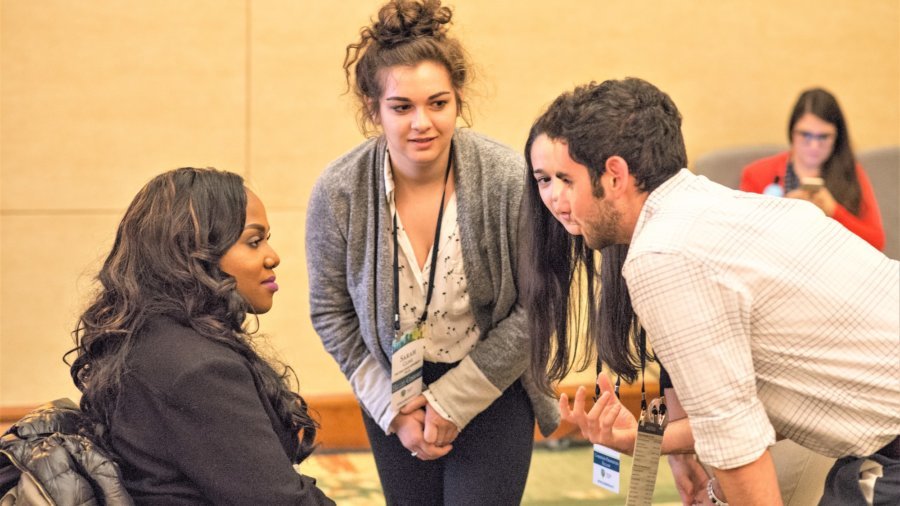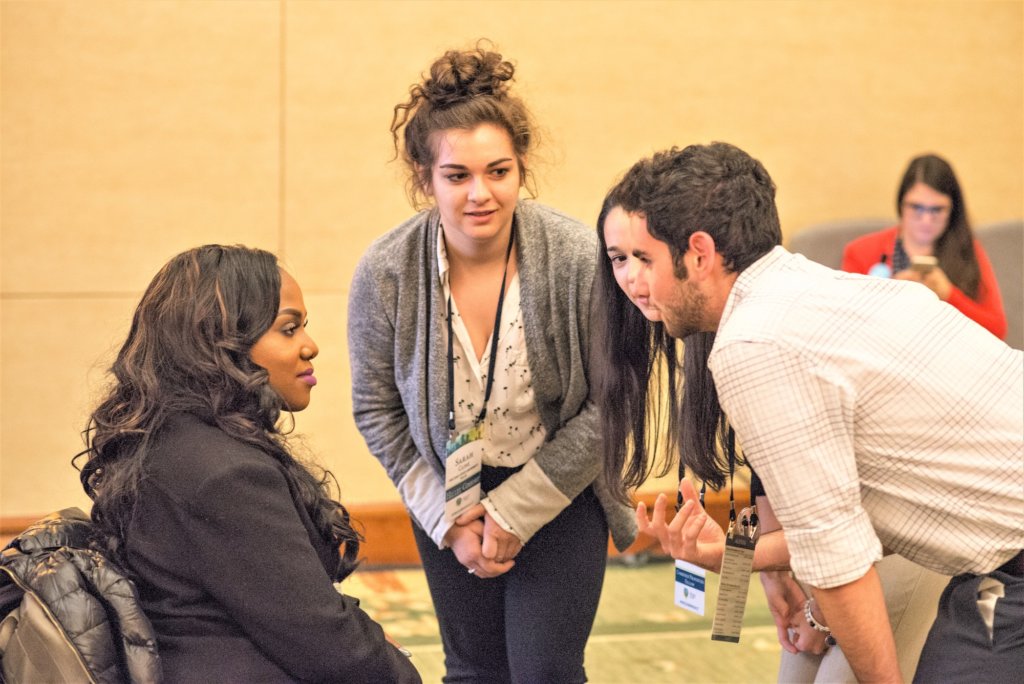Concerns High on Access to Healthcare, Education, Jobs, Fighting Stigmas and Jewish Inclusion
Washington, D.C., January 7, 2019 – More than 4000 respondents participated in a RespectAbility survey focused on the inclusion of people with disabilities in faith communities in America. This includes 133 Jews in the disability community in the Washington, D.C., Maryland and Virginia area, and an additional 42 with no disability connection in this region. More than 900 Jews who self-disclose they are a person with a disability participated in the study overall.
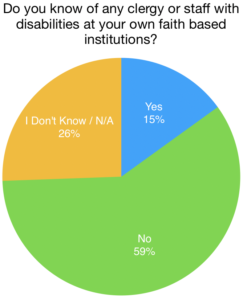
59% of Jewish D.C.-area respondents with disabilities do not know of any clergy or staff with disabilities at their synagogue.
The Jewish respondents with disabilities in the District of Columbia, Maryland and Virginia (DMV) region and across the nation point to a lack of people with disabilities in leadership roles as Rabbis, cantors or staff at Jewish institutions. While overall things are improving significantly in terms of access and inclusion for Jews with disabilities in the DMV, they also do not yet fully feel welcomed to serve as leaders in lay positions in the Jewish community. Only 15 percent of Jews with disabilities know of a person with a disability in a leadership position. Nationally fewer than 10 percent of Jews with no disability connection know of a person with a disability in leadership. Only 17 percent of area Jews in the disability community answer “yes” that they “feel that people with disabilities are encouraged to serve on the boards and committees of your faith-based institutions,” which is in line with the national results at 18 percent.
Said Jennifer Laszlo Mizrahi, president of RespectAbility, “If you see it, you can be it – and today Jews with disabilities need more role models with disabilities in leadership in the Jewish community. Many also want to be recruited, trained and empowered to make the Jewish community stronger, just like anyone else.” [continue reading…]


